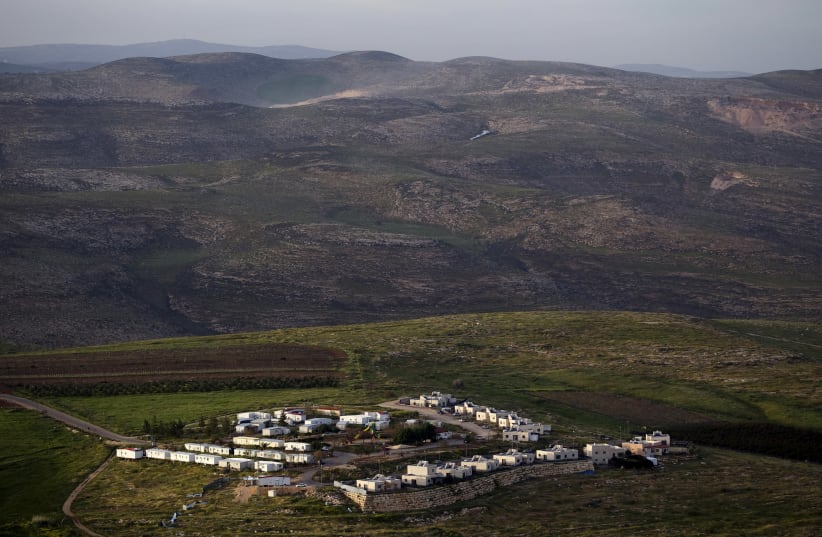Prime Minister Benjamin Netanyahu promised to work to prevent the execution of the High Court of Justice demolition order of settler homes in the unauthorized Mitzpe Kramim outpost, which were built on private Palestinian property.
“All avenues will be explored to keep the residents where they are and we’re convinced that we will succeed in this,” Netanyahu said.
"I regret the mistaken HCJ ruling regarding the evacuation of Mitzpe Karmim. I instructed the director general of my office Ronen Peretz to meet with representatives of the community,” he added.
The court’s ruling marked the first time in years that such a judgement had been rendered. The last court ordered demolition occurred at the Netiv Haavot outpost in 2018.
At issue in Mitzpe Kramim are four permanent structures, 30 modular homes and some public structures, according to the right-wing non-governmental group Regavim. Some ten structures were not part of the judgement.The court on Thursday set a time line of 36 months for the evacuation, and ordered the state to find alternative housing for the families.The move comes as settlers have feared the suspension of West Bank annexation would be followed by measures against them.At issue in particular has been the status of unauthorized homes, which had been on hold in light of the pending status change to the settlements.The court gave nod to a changing legal understanding that could preserve some of the unauthorized settlers structures in the West Bank, of which there are some 4,000 – the majority of which are in settlements.When Ayelet Shaked was justice minister, her office has argued that the market regulation allowed for the authorization of homes on private Palestinian property built in “good faith," as in with no understanding of wrongdoing.The court said that the market principle could be applicable in general, but were not applicable here, and it blamed the state and not the settlers.The Yesha Council said the decision was “dictatorial” and “discriminatory” and called on Prime Minister Benjamin Netanyahu to immediately authorized thousands of new units in response.The outpost was built in 1999 but relocated to agricultural lands that were part of the Kochav HaShahar settlement, that had initially been seized by the IDF from Palestinians as a firing zone.In 2011, Palestinians petitioned the court against the outpost. The matter was transferred to the Magistrate’s Court, which ruled that the homes could be authorized. The Palestinians then turned to the High Court of Justice, which re-examined the case.
